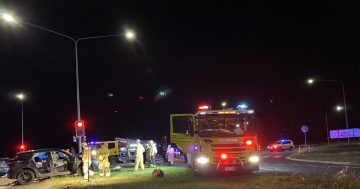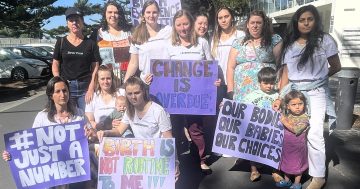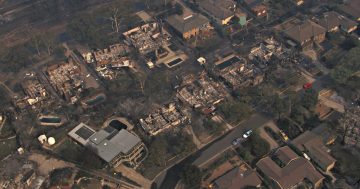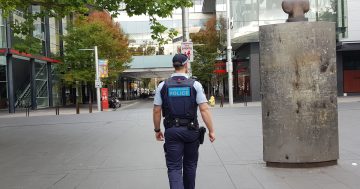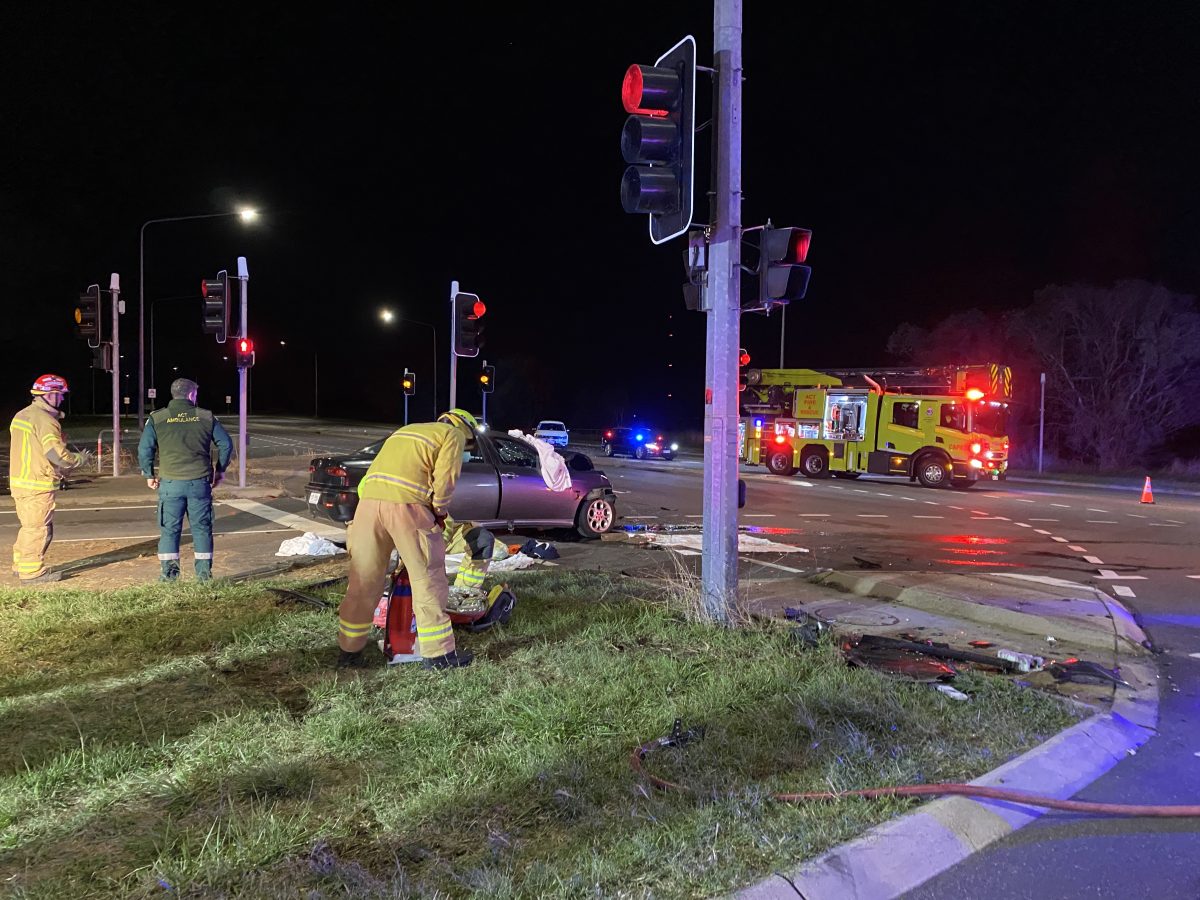
Frontline emergency responders usually need to provide on-scene support for victims and witnesses of traumatic events, alongside trying to secure scenes. Photo: ACT Policing.
For the second time in two years, a committee inquiry has told the ACT Government it needs to “urgently” implement a trauma support service in Canberra.
The Standing Committee on Justice and Community Safety released its two recommendations following public hearings into the option earlier this year.
Canberra used to have a first-response trauma service provided by SupportLink, which was called on when there was a sudden or unexpected death in the ACT.
However, this service stopped in 2016 after its government funding was cut.
The committee heard immediate support at scenes attended by emergency services, which is currently largely delivered by police officers, who aren’t necessarily equipped to do so.
“As it stands at the moment, we do the best that we can, and it is an expectation on our officers that they can [provide trauma support] or that they do it,” ACT Policing Deputy Chief Police Officer Doug Boudry told the inquiry.
“Is it the best way? There are probably models that could be explored.”
This expectation also takes the focus of police and other emergency service members away from processing a scene.
The ACT Government submitted that, in most cases, “people have the natural resilience” to address any arising issues or had existing support networks they could access.
But SupportLink argued even people with “normal” coping mechanisms could be “impaired” by a traumatic event.
It submitted that best practice would be the provision of “psychological first aid” and that the “gold standard” practice for care at a traumatic scene would include having a person available to sit with those impacted to answer questions and figure out the next steps for support.
It identified that supports that could be necessary following a traumatic incident included medical care, “clear and empathetic communication” about what had happened, ongoing information about police procedures and processes, information about support services, help to fulfil practical needs (such as phoning family, arranging transport), and providing “kindness, compassion and emotional support”.
Other support services exist, but it was emphasised during the submissions and hearings that many are not 24/7 services, don’t provide immediate support, have restrictions that make them inaccessible to certain groups, or were experiencing “severe resource limitations” due to funding pressures.
Ultimately, the committee formed the view that a gap needs to be filled.
“Evidence to this inquiry suggests that the provision of immediate, face-to-face support provided by a person trained in trauma-informed practices, who is solely present for that purpose, would ensure the best recovery outcomes for people affected by trauma,” it noted.
“The Committee considers that establishing a fully resourced immediate trauma support service in the ACT would alleviate some of the pressures on first responders. They would also benefit from increased capacity to tend to their primary tasks.”
This inquiry was established after a 2022 inquiry was held into dangerous driving.
Families of those killed in crashes across the Territory outlined how having sufficient support in the early stages of a loved one’s death was crucial and that having a trauma support person available at the scene would have made a big difference.
The earlier inquiry found there was a gap in “immediate trauma support at the scene of an incident”. It recommended that the government “urgently fund” both an on-scene trauma service and a 24-hour hotline to help victims and their families.
At the time, the ACT Government noted this recommendation.
The government has four months in which to respond to this latest report.












